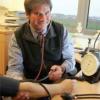SAPC ASM 2019 - Exeter
48th annual scientific meeting
Primary Care: Arriving? Or departing?
Congratulations to the prize winners at the SAPC ASM 2019, Exeter
Abstracts of SAPC ASM 2019 (downloadable pdf)
DOI reference: 10.37361/asm.2019.1.1
DOI LINK: https://sapc.ac.uk/doi/10.37361/asm.2019.1.1
Copyright belongs to the authors of the individual abstracts under the creative commons licence
Reports and blogs from the conference
Reflections on a wonderful ASM by Carolyn Chew-Graham, new Chair of SAPC
Conference blog part 1 and part 2 by Domhnall MacAuley, Canadian Medical Association Journal (CMAJ)
Workshop Hot off the Press report
The Exeter Astana statement on primary care
Registration tickets and bursaries
Accommodation - if you have made a booking at Holland Hall student accommodation and need to check details please phone 0300 555 0214 and select option 2 or 5.
Not yet a member of SAPC? Visit the joining page - become a member to be able to register at the lower member rate fees
Guidance for presenters:
Programme
Outline schedule including workshop details
Early career solution room - post-workshop follow up to unanswered questions
Education sessions throughout the conference
Pre and Post Conference: Wednesday morning and Friday afternoon meetings and workshops
View the Special Interest Groups taking place on the morning of Wednesday 3rd July
View the Workshops taking place on the afternoon of Friday 5th July (13:30-15:00)
Call for abstracts for information - submission now closed
Abstract submission deadline: Sunday 17th February 2019 - CLOSED
Author notifications have been sent by email if you hav not yet heard please email office@sapc.ac.uk
Early bird registration until: Friday 3rd May 2019
Conference chair: Professor John Campbell
Scientific Programme chair: Professor Jose M Valderas
Scientific Programme co-chair: Professor Willie Hamilton CBE
Clinical, organisational, policy, educational and methodological research for the primary care of the future
40th anniversary revisit of the Alma-Ata declaration on primary health care.
Come and join us
The University of Exeter Collaboration for Academic Primary Care (APEx) are delighted to be hosting the 48th Annual Scientific Meeting of the Society for Academic Primary Care (SAPC)
This annual conference showcases the latest research and education in academic primary care from the UK and around the world in keynote presentations, parallel sessions of verbal presentations, posters, workshops and symposia. The programme will also feature lightning presentations (short 5 minute slots), poster pitches, a creative arts stream and "The Solution Room" - an early careers workshop.
The declaration of Alma-Ata of 1978 was of landmark importance in respect of primary care. Not only did the declaration incorporate an important definition of primary health care, but political and strategic action was encouraged for governments around the world. Primary care as a clinical and scientific discipline has continued to develop globally since that time.
Late 2018 sees a renewed vision for primary health care in the WHO Astana declaration, and in light of this, our conference theme considers whether primary care has now “arrived” or is “departing” with important work still to do, areas to develop, and healthcare systems to influence. Globally, primary care still offers great advantages for patients, populations, and the global public at large.
With the ongoing rise of chronic illness, keynotes addressing the challenge of the tide of diabetes and the importance of antimicrobial resistance will provide an important platform for our scientific consideration. Set against this, a view from the inside regarding the revised Alma-Ata declaration will provide the platform for an exciting, probing, and relevant conference exploring the evidence base for our clinical discipline.
We look forward to welcoming you to Exeter in July 2019.
Audience
This annual conference brings together junior to senior researchers and educators, from the UK primary care community and from around the world. It is a platform to showcase the latest research on any subjects relating to primary care.
We welcome some of the world’s most experienced, leading experts in the field of primary care research and education, and we warmly invite students: Medical students, along with nursing, pharmacy, physiotherapy and occupational therapy students; the health service pioneers of the future.
The conference provides a fantastic opportunity for both current and future academics to come together to discuss cutting edge and exciting new research; to help shape the future of primary care.
Speakers
Schedule
Day 1 : Tuesday 2nd July
HODs and HOTs meetings
HODs and HOTs dinner
Day 2 : Wednesday 3rd July
Abstracts of SAPC ASM 2019 (downloadable pdf) |
09.00 – 11.45 HODs meeting in the Council Chamber, Northcote House adjacent to the Forum
09.00 – 11.00 HOTs meeting in the Upper Lounge, Reed Hall
11.00 – 12.30 Education symposium in the Upper Lounge, Reed Hall
Registration desks open
Special interest groups - 1. Palliative care and 2. Statistics group |
Special interest groups - 1. Cardiovascular Research, 2. Compassion, 3. Digital technologies, 4. Mental health, 5. Personal care and The Self |
Lunch
Opening session
Opening Iryna Ilnytska
Address by Professor Sir Steve Smith Vice-Chancellor and Chief Executive of the University of Exeter
Plenary 1: Dr Jennifer Dixon CBE
The New Primary Care; mind the gaps
Service delivery and staffing shortages in a new age of primary care
TEA BREAK and poster session 1 viewing and discussion
PUBLIC LECTURE - 6th Helen Lester Memorial Lecture by Professor Gene Feder OBE
Conference drinks reception, afterwards free time to dine out with colleagues
Day 3 : Thursday 4th July
Primary Health Care Scientists Meeting (PHoCuS) coffee, tea and pastries available from 07:45
Seminar room 1&2
Plenary 2:
In the Auditorium
Chair: Jose M Valderas
Delivering on the Declaration of Astana: from vision to action on primary health care
Dr Shannon Barkley, MD, World Health Organisation Technical Officer for Primary Health Care Services and Family Medicine
A reflection on academic primary crae in the light of the Astana Declaration
Jose M Valderas, John Campbell, Jo Butterworth
Most distinguished papers:
Dr Victoria Palmer, best presentation at the annual meeting (2018) of the Australian Association of Academic Primary Care
Dr Anne Gaglioti, best presentation at the annual meeting (2018) of the North American Primary Care Group
Dr Emma Wallace, winner of the Yvonne Carter Award for Outstanding Early Career Researcher
COFFEE BREAK and poster session 1 viewing and discussion
Lunch break
12:30 - 13:30 SAPC update including the Annual General Meeting
Tea break and poster discussion
TEA BREAK and poster session 2 viewing and discussion
SAPC Ambassadors meeting in Seminar room 1&2
Optional activities:
17.15 - 18.15 Guided tour of trees and sculpture on campus - meet at the SAPC registration desk
Swimming at the outdoor pool at Cornwall House (until 18:00) - pick up blue wrist bands at the SAPC registration desk at The Forum
17.30 - 18.45 Fun football tournament - open to all ages, abilities - meet at the Sports Park
Conference dinner
Day 4 : Friday 5th July
Plenary 3
Chair: John Campbell
Opening Sally Flint
Professor Andrew Hattersley CBE FRS
The app will see you now - improving clinical care in diabetes
COFFEE BREAK and poster session 2 viewing and discussion
FINAL PLENARY
In the Auditorium
Chair: John Campbell
CONFERENCE PAPERS OF DISTINCTION selected as the best high scoring abstracts
PP1 How appropriate are current primary care responses to poverty-related mental distress?
Felicity Thomas
Anna Wood
PRIZE GIVING
SAPC ASM 2020 preview
Lunch boxes served
Venue
The Forum, Stocker Road, Streatham Campus, University of Exeter
Maps
SAPC conference venues (Google) - The Forum: conference venue and Holland Hall: accommodation,
Streatham Campus map Area A The Forum, Stocker Road, bulding 3 (conference sessions), Holland Hall (accommodation) building 62
Car parking
We recommend travelling to Streatham Campus, University of Exeter by train but should you be driving parking is available for free at Holland Hall (student accommodation) or in pay and display car parks on the rest of the Campus from 8am to 6pm Monday to Friday.























